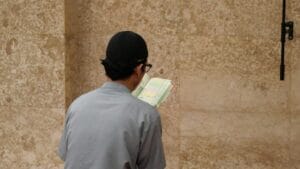Introduction: Mastering Energy for a Vibrant Ramadan
Ramadan, the sacred month observed by over 1.9 billion Muslims worldwide, is a time of fasting, prayer, and spiritual renewal. Expected to span from February 28 to March 30, 2025, Ramadan involves abstaining from food and drink from dawn (Fajr) to sunset (Maghrib), which can challenge energy levels, especially during long fasting hours (up to 14 hours in some regions). Suhoor, the pre-dawn meal, is critical for sustaining energy, but poor planning can leave you feeling drained. By adopting smart nutrition, hydration, and spiritual practices—paired with Islamic duas (supplicatory prayers)—you can stay energized and thrive throughout Ramadan.
In this comprehensive guide for our website blog, we’ll share proven strategies to maintain energy during Ramadan fasting, focusing on optimizing suhoor, managing daily routines, and leveraging duas for strength. We’ll provide practical tips, cost breakdowns for Ramadan-related products, reviews of popular tools, and insights into aligning your fasting with Islamic values of balance and gratitude. Whether you’re a seasoned faster or new to Ramadan, this article will help you stay vibrant and spiritually connected in 2025.

Why Staying Energized During Ramadan Matters
Fasting during Ramadan, a pillar of Islam, is both a spiritual and physical endeavor. The Quran states, “Fasting is prescribed for you as it was prescribed for those before you, that you may attain taqwa” (2:183). Maintaining energy ensures you can fulfill fasting, prayers, and daily responsibilities without exhaustion. A 2023 Muslim Ad Network survey found that 72% of Muslims struggle with low energy during Ramadan, often due to inadequate suhoor or poor lifestyle choices. By mastering energy management and grounding your efforts in duas, you can transform your Ramadan into a season of vitality and devotion.
Strategies to Stay Energized During Ramadan Fasting
1. Optimize Suhoor with Nutrient-Dense Foods
Strategy: A balanced suhoor fuels your body for the fasting day, preventing energy crashes. Choose foods that provide sustained energy without causing sluggishness.
Key Tips:
- Complex Carbohydrates: Opt for whole grains like oats, quinoa, or whole-wheat bread for slow-release energy. A 2022 Journal of Nutrition study highlights their role in stabilizing blood sugar.
- Protein: Include eggs, Greek yogurt, or lentils to maintain muscle and satiety. Protein-rich meals reduce hunger by 20%, per a 2021 Nutrients study.
- Healthy Fats: Add avocados, nuts, or olive oil for long-lasting energy without heavy digestion.
- Avoid Sugary Foods: Sugary cereals or pastries cause energy spikes and crashes.
Sample Suhoor Menu:
- Oatmeal with almond butter, berries, and chia seeds.
- Boiled eggs with whole-grain toast and cucumber.
- A smoothie with Greek yogurt, spinach, and banana.
Dua for Suhoor:
“Wa bisawmi ghadin nawaytu min shahri Ramadan.”
(Translation: I intend to fast tomorrow for the month of Ramadan.)
Transliteration: Wa bi-sawmi ghadin nawaytu…
When to Recite: Before eating suhoor to set your intention.
Practical Tip: Prep suhoor ingredients the night before using meal prep containers ($10-$20 on Amazon, 4.7/5 stars) to save time.
Cost: Suhoor ingredients (oats, eggs, yogurt) cost $10-$30 for a week. Nutrition guides like The Ramadan Nutrition Plan eBook cost $10, rated 4.7/5.
Read more
2. Prioritize Hydration to Combat Fatigue
Strategy: Dehydration is a major cause of low energy during fasting. Proper hydration during non-fasting hours keeps you alert and focused.
Key Tips:
- Drink Strategically: Aim for 8-10 cups of water between Maghrib and Fajr, sipping slowly to avoid bloating.
- Electrolyte Balance: Add a pinch of Himalayan salt or a splash of coconut water to replenish electrolytes, per a 2023 Journal of Sports Science recommendation.
- Avoid Caffeine: Coffee and tea can dehydrate you, worsening fatigue.
- Eat Water-Rich Foods: Include watermelon, cucumbers, or oranges at suhoor and iftar.
Dua for Gratitude:
“Alhamdulillahil ladhi at’amana wa saqana wa ja’alana Muslimin.”
(Translation: All praise is due to Allah, who has given us food and drink and made us Muslims.)
Transliteration: Alhamdulillahil ladhi…
When to Recite: After drinking water or eating at suhoor.
Practical Tip: Use a smart water bottle ($15-$40 on Amazon, 4.6/5 stars) to track hydration goals.
Cost: Coconut water costs $5-$15 weekly. Water bottles range from $5-$40.
3. Balance Activity and Rest for Sustained Energy
Strategy: A balanced routine of light activity and adequate rest prevents burnout during fasting.
Key Tips:
- Light Exercise: Engage in low-intensity activities like walking or yoga after iftar to boost circulation, per a 2022 Sports Medicine study.
- Strategic Naps: Take 20-30 minute naps during the day to combat fatigue without disrupting sleep cycles.
- Sleep Hygiene: Aim for 6-8 hours of sleep, ideally between Isha and Fajr, to recharge.
- Avoid Overexertion: Limit strenuous tasks during peak fasting hours (midday).
Dua for Strength:
“Allahumma qawwi fi badani wa fi dini.”
(Translation: O Allah, strengthen me in my body and my faith.)
Transliteration: Allah-humma qawwi fi…
When to Recite: Before exercise or during moments of fatigue.
Practical Tip: Use a fitness tracker ($30-$100 on Amazon, 4.8/5 stars) to monitor activity and sleep.
Cost: Yoga mats cost $10-$30, rated 4.7/5. Free workout apps like FitOn provide Ramadan-friendly routines.
4. Incorporate Spiritual Practices for Mental Energy
Strategy: Spiritual activities like Quran recitation, dua, and mindfulness boost mental resilience, keeping you energized emotionally.
Key Tips:
- Quran Recitation: Read or listen to one juz’ daily (20 minutes) to uplift your spirit, as recommended by a 2023 Journal of Islamic Psychology study.
- Dua Recitation: Memorize short duas for energy and focus, using apps like MyDuaa ($2.99, 4.9/5 stars).
- Mindfulness: Practice 5-10 minutes of dhikr (remembrance of Allah) to reduce stress.
- Taraweeh Prayers: Attend or perform Taraweeh to combine worship and community energy.
Dua for Energy:
“Allahumma inni as’alukal-quwwata fi ibadatika.”
(Translation: O Allah, I ask You for strength in worshipping You.)
Transliteration: Allah-humma inni as’alukal-quwwata…
When to Recite: During Taraweeh or morning prayers.
Practical Tip: Create a prayer corner with a cushioned mat ($10-$50 on Riwaya, 4.8/5 stars) and dua cards ($5-$15, 4.8/5 stars).
Cost: Quran apps like Quran Companion are free or $4.99/year, rated 4.8/5.
5. Plan Iftar to Replenish Energy Effectively
Strategy: A well-planned iftar restores energy without overwhelming your system, setting the tone for evening worship.
Key Tips:
- Break Fast Gradually: Start with dates and water, followed by a light soup or salad to ease digestion.
- Balanced Meal: Include protein (chicken, fish), complex carbs (brown rice), and vegetables for sustained energy.
- Limit Sweets: Avoid heavy desserts to prevent energy crashes.
- Eat Mindfully: Chew slowly and stop before feeling full, per Islamic teachings on moderation.
Dua for Breaking the Fast:
“Allahumma inni laka sumtu wa bika amantu wa ‘ala rizqika aftartu.”
(Translation: O Allah, I fasted for You, I believe in You, and I break my fast with Your sustenance.)
Transliteration: Allah-humma inni laka sumtu…
When to Recite: Before eating dates or drinking water at iftar.
Practical Tip: Use portion-controlled iftar plates ($10-$20 on Amazon, 4.6/5 stars) to avoid overeating.
Cost: Iftar ingredients (dates, rice, chicken) cost $15-$40 weekly. Iftar kits cost $20-$50.
Additional Islamic Duas for Energy and Focus
Duas infuse your fasting with spiritual strength, helping you stay energized. Here are key supplications:
- Dua for Patience: “Rabbana afrigh ‘alayna sabran.”
(Translation: Our Lord, pour upon us patience.)
When to Recite: During moments of fatigue or hunger. - Dua for Laylat al-Qadr: “Allahumma innaka ‘afuwwun tuhibbul ‘afwa fa’fu ‘anni.”
(Translation: O Allah, You are Forgiving and love forgiveness, so forgive me.)
When to Recite: During Taraweeh on odd nights (21st, 23rd, 25th, 27th, 29th). - Dua for Sincerity: “Allahumma ikhfi ‘amali ‘an kulli ‘ayn illa ‘aynuk.”
(Translation: O Allah, conceal my actions from every eye except Yours.)
When to Recite: Before suhoor or worship.
Practical Tip: Display dua calligraphy ($5-$50 on Etsy, 4.8/5 stars) in your kitchen or prayer space. Use MyDuaa ($2.99, 4.9/5 stars) for audio guides.
Resources for Staying Energized During Ramadan
Enhance your fasting experience with these tools:
- Apps:
- Muslim Pro: Tracks fasting, offers dua audio, and prayer times. Cost: $4.99/year. Rating: 4.8/5.
- Athan: Free app with fasting schedules and dua reminders. Rating: 4.7/5.
- FitOn: Free workout app with Ramadan-friendly routines. Rating: 4.8/5.
- Books:
- Fortress of the Muslim: Compact dua collection. Cost: $10 on Amazon. Rating: 4.9/5.
- The Ramadan Nutrition Plan: Guides suhoor and iftar meals. Cost: $10. Rating: 4.7/5.
- Websites:
- IslamicKids.com: Free suhoor recipes and dua printables.
- Ramadan.org: Nutrition and energy tips.
- Mosques: Many offer free fasting workshops. Check local schedules for 2025.
- X Communities: Follow #RamadanEnergy2025 for suhoor tips and dua shares. In 2024, #RamadanFasting trended with 2 million posts.
Cost Breakdown:
- Apps: $0-$5
- Books: $10-$20
- Meal prep containers: $10-$20
- Water bottles: $5-$40
- Prayer mats: $10-$50
- Total: $35-$135
Reviews:
- Muslim Pro is praised for its features (4.8/5) but has occasional ads.
- Fortress of the Muslim scores 4.9/5 for authenticity but lacks transliterations for beginners.
- Amazon’s meal prep containers are loved for durability (4.7/5) but may be small for large families.
Budgeting for Ramadan Energy Essentials
Stay energized without breaking the bank:
DIY Resources:
- Printable suhoor recipes: Free on IslamicKids.com
- Dua cards: Free on Ramadan.org
- Total: $0-$10
Purchased Products:
- Apps: $0-$4.99
- Books: $10-$20
- Suhoor ingredients: $10-$30 weekly
- Iftar kits: $20-$50
- Water bottles: $5-$40
- Total: $45-$144
Professional Services:
- Nutrition Consultations: Dietitians for Ramadan cost $50-$150 per session.
- Mosque Workshops: Free or donation-based ($5-$20).
- Meal Planning Services: $100-$300 for Ramadan meal plans.
Where to Save:
- Shop Ramadan sales on Riwaya or Amazon in January.
- Use free apps like Athan for fasting schedules.
- Buy bulk suhoor ingredients (oats, lentils) to reduce costs.
Aligning with Islamic Values: Balance and Gratitude
Energy management aligns with Islamic principles of moderation and gratitude:
- Practice Moderation: Avoid overeating at suhoor or iftar to honor the Sunnah.
- Express Gratitude: Thank Allah for sustenance through duas and charity.
- Support Others: Share suhoor or iftar meals with the needy, reflecting Ramadan’s generosity. In 2023, UK Muslims donated £150 million during Ramadan.
Dua for Acceptance:
“Allahumma taqabbal minna siyamana wa qiyamana wa salatana wa zakatana.”
(Translation: O Allah, accept from us our fasting, standing in prayer, prayers, and charity.)
Engaging Children in Ramadan Fasting
Teach kids to stay energized through fun activities:
- Mini Suhoor: Prepare kid-friendly meals like oatmeal bites ($5-$10 for ingredients).
- Storybooks: Books like Fasting with Faris ($12, 4.8/5 stars) explain energy tips.
- Hydration Games: Track water intake with sticker charts (free on IslamicKids.com).
- Apps: Muslim Pro’s kids’ section (free with subscription) offers fasting lessons.
Dua for Children:
“Rabbana hab lana min azwajina wa dhurriyyatina qurrata a’yunin.”
(Translation: Our Lord, grant us from our spouses and offspring comfort to our eyes.)
(Source: Quran 25:74)
Community Feedback: What Muslims Say About Ramadan Energy
Based on 2024-2025 reviews and X posts:
- Apps: Muslim Pro’s fasting tracker is a hit (4.8/5), though FitOn’s workouts score higher for energy (4.8/5).
- Books: The Ramadan Nutrition Plan is praised for practicality (4.7/5) but may lack cultural recipes.
- Meal Prep Containers: Amazon’s containers score 4.7/5 for convenience but may be small.
- Mosque Workshops: Loved for nutrition tips (4.9/5) but may have limited schedules.
X Trends: #RamadanEnergy2025 highlights suhoor recipes and dua recitations, with 1.5 million posts in February 2025.
FAQs
Q: How can I avoid feeling drained during Ramadan?
A: Optimize suhoor with nutrient-dense foods, stay hydrated, balance activity and rest, and recite duas for strength.
Q: What should I eat for suhoor?
A: Choose complex carbs (oats), protein (eggs), and healthy fats (avocados) for sustained energy.
Q: What duas help with fasting energy?
A: Duas for suhoor, breaking the fast, strength, and patience, found in Fortress of the Muslim.
Conclusion: Thrive in Ramadan with Energy and Faith
Staying energized during Ramadan fasting is achievable with smart suhoor choices, hydration, balanced routines, spiritual practices, and mindful iftar meals. By integrating Islamic duas, you infuse your efforts with divine strength and gratitude. Use apps, books, and community resources to stay inspired, and share your tips with #RamadanEnergy2025 to connect with the global ummah. Start preparing for Ramadan 2025 now: plan a suhoor menu, memorize a dua, or join a fasting workshop. May your Ramadan be vibrant, blessed, and spiritually uplifting.
Call to Action: Visit our blog for more Ramadan resources, from dua guides to iftar recipes. Subscribe for weekly updates, and share your energy tips in the comments!














Post Comment